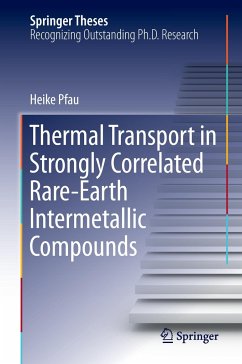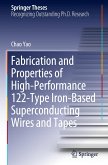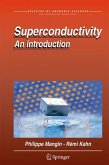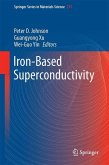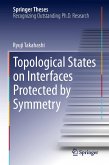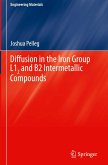This thesis explores thermal transport in selected rare-earth-based intermetallic compounds to answer questions of great current interest. It also sheds light on the interplay of Kondo physics and Fermi surface changes.
By performing thermal conductivity and electrical resistivity measurements at temperatures as low as 25mK, the author demonstrates that the Wiedemann-Franz law, a cornerstone of metal physics, is violated at precisely the magnetic-field-induced quantum critical point of the heavy-fermion metal YbRh2Si2. This first-ever observation of a violation has dramatic consequences, as it implies a breakdown of the quasiparticle picture.
Utilizing an innovative technique to measure low-temperature thermal transport isothermally as a function of the magnetic field, the thesis interprets specific, partly newly discovered, high-field transitions in CeRu2Si2 and YbRh2Si2 as Lifshitz transitions related to a change in the Fermi surface. Lastly, by applying this new technique to thermal conductivity measurements of the skutterudite superconductor LaPt4Ge12, the thesis proves that the system is a conventional superconductor with a single energy gap. Thus, it refutes the widespread speculations about unconventional Cooper pairing in this material.
By performing thermal conductivity and electrical resistivity measurements at temperatures as low as 25mK, the author demonstrates that the Wiedemann-Franz law, a cornerstone of metal physics, is violated at precisely the magnetic-field-induced quantum critical point of the heavy-fermion metal YbRh2Si2. This first-ever observation of a violation has dramatic consequences, as it implies a breakdown of the quasiparticle picture.
Utilizing an innovative technique to measure low-temperature thermal transport isothermally as a function of the magnetic field, the thesis interprets specific, partly newly discovered, high-field transitions in CeRu2Si2 and YbRh2Si2 as Lifshitz transitions related to a change in the Fermi surface. Lastly, by applying this new technique to thermal conductivity measurements of the skutterudite superconductor LaPt4Ge12, the thesis proves that the system is a conventional superconductor with a single energy gap. Thus, it refutes the widespread speculations about unconventional Cooper pairing in this material.

